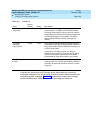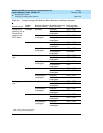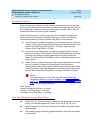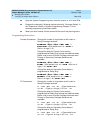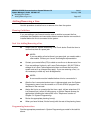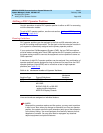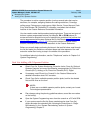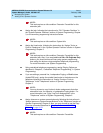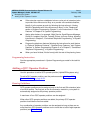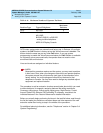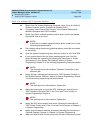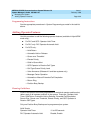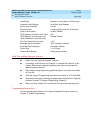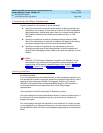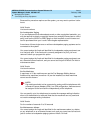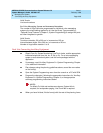
MERLIN LEGEND Communications System Release 6.0
System Manager’s Guide
555-660-118
Issue 1
February 1998
Managing the System
Page 6-61Adding a QCC Operator Position
6
If the extension requires a dedicated voice or voice pair of extension jacks
to provide Voice Announce to Busy or to provide voice and data features,
identify it to the system as such by following the instructions in “Analog
Multiline Telephones with Voice Announce to Busy” in the “Telephones”
section of
System Programming
, Chapter 3, or the instructions in “Data
Features” in Chapter 4 of
System Programming
.
Assign other buttons, for example, Night Service, Send/Remove Message,
Camp-On, headset, Auto Dial, Forward, Pickup, or Group Pickup, following
instructions in Chapter 5, “Centralized Telephone Programming,” of
System
Programming
.
Program the telephone features following the instructions for each feature
in “Optional Telephone Features,” “Optional Group Features,” and “System
Features” in
System Programming
, Chapter 3, or in Chapter 5, “Centralized
Telephone Programming,” of
System Programming
.
When you have finished, file the form(s) with the rest of the planning forms.
Programming Instructions 6
See the appropriate procedures in
System Programming
as noted in the task list
above.
Adding a QCC Operator Position 6
Use this procedure to add a QCC operator position (Hybrid/PBX systems only).
To add a DLC operator position, see the previous section, “Adding a DLC
Operator Position” on page 6–58.
Planning Guidelines 6
QCC operator positions can be assigned only to the first and fifth extension jacks
of an MLX module. The first jack on the first extension module in your system is
automatically assigned as the primary operator position.
A maximum of four QCC operator positions can be assigned.
When other QCC operator positions are added, the primary QCC operator
position should be the first one added.
Any combination of operator positions can be assigned as long as there are no
more than four QCC operator positions and no more than a total of eight operator
positions (see Table 6–11
).



